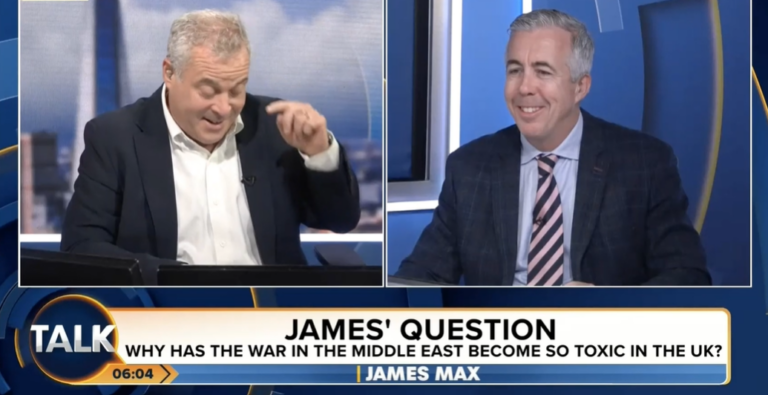Tuesday’s (7th February) reshuffle saw greater “machinery of government” changes than it did to Cabinet personnel. Rishi Sunak has overseen the biggest recasting of Whitehall structures since Theresa May arrived at Downing Street in 2016. In doing so, he is attempting to shake up Whitehall’s ability to make the UK a “Scientific Superpower”, secure energy supplies and net zero transition, ensure businesses are best supported through leaving the EU and promote the nation’s strengths in the cultural and creative industries.
The biggest casualty is the Department for Business, Energy and Industrial Strategy (BEIS) – a department known to have clashed with Sunak whilst he was Chancellor. The Department for Digital, Culture, Media and Sport (DCMS) and the Department for International Trade (DiT) have also adapted as part of the changes. We have been left with four new Whitehall Ministries – below we summarise who are the key people, priorities and problems each of them might face.
The Department for Science, Innovation and Technology (DSIT) – brings together the innovation policy areas of the former BEIS and digital focus of the former DCMS.
People: The Department will be headed up by Michelle Donelan, formerly of DCMS who has been leading on the Online Safety Bill, she is also a former Universities Minister which should help with the overlap with research policy. George Freeman becomes the Minister of State coming across from BEIS, where he was Science Minister, he has been a passionate champion of the UK’s science and research policy. He is joined by Paul Scully, who has been leading on digital strategy and online harms. Sarah Munby will be the key civil servant, she previously led BEIS since 2020. The Department will oversee the UK Research and Innovation and the newly established Advanced Research and Invention Agency – two important cogs of the research funding landscape.
Priorities: A focus on R&D investment from public and private sources, roll out of modernised digital infrastructure, championing international collaborations, promoting effective AI regulation and passing the Online Safety Bill are in Donelan’s in-tray. Given the Prime Minister’s strong interest in this policy area, the new Department will have clout and his support behind it to drive this agenda forward.
Problems: As has been the case throughout history, the greatest factor affecting the success of DSIT will be the willingness of the Treasury to fund its work and allow it institutional independence.
Department for Energy Security and Net Zero – The energy and net zero policy portfolio of BEIS forms this new Department.
People: Grant Shapps moves across from BEIS to become the inaugural Secretary of State. His previous role was reportedly “90% energy-focused” so doing so makes sense, Shapps also had a keen interest in electric vehicles when he was Transport Minister (he owns a Tesla). Graham Stuart remains Minister of State for Energy Security and Net Zero and Lord Callanan retains his focus on energy efficiency. Andrew Bowie comes across from Trade and Amanda Solloway also joins the team (she was a BEIS Minister between 2020-21). The Permanent Secretary will be Jeremy Pocklington (formerly at Levelling Up), while Ofgem, the Committee on Climate Change and Great British Nuclear will be included in the remit.
Priorities: The most pressing political matters namely tackling the cost of bills, ensuring the UK has a secure supply of energy in the long-term and meeting the UK’s Net Zero targets.
Problems: Although there have been more positive forecasts around energy bills, the phasing out of support will cause several issues for businesses across the UK. There will be fights to come within the Conservative Party on how far to go on the net zero agenda – will onshore wind and new nuclear power stations get the green light?
Department for Business and Trade – brings together the business focused functions of BEIS and DiT.
People: Former (and possibly future) leadership candidate Kemi Badenoch emboldens her brief with a domestic role to sit alongside her trade focus. Nigel Huddleston and Lord Johnson join her from the Trade Department, while Nusrat Ghani and Kevi Hollinrake come across from BEIS, both of whom are likely to oversee different business sectors. Gareth Davies will be the lead official coming across from DiT, notable public bodies and agencies include the Competition and Markets Authority, British Business Bank and UK Export Finance.
Priorities: The Department has been tasked with reforming regulation and “unlocking Brexit freedoms” for British business. Securing a trade deal with India and passing the EU Retained Law Bill will be two focus areas in the year ahead.
Problems: Some have questioned where the new Business and Trade Department will fit in the overall attempt to improve the UK’s productivity and what funding it will realistically have to achieve this goal. The FSB and Make UK have expressed concern about the uncertainty and delay that this restructuring could cause to ongoing BEIS projects and funding commitments.
Department for Culture, Media and Sport – retains the “civil society” remits it had before but with digital policy split off to return to its pre-2017 form.
People: Lucy Frazer has been appointed Secretary of State, having served as a Minister for Housing, Transport, Justice, and the Treasury. Stuart Andrew will likely remain Minister for Sport, Tourism and Civil Society and Julia Lopez will oversee media and creative industries. Lord Parkinson also retains his place, he was previously leading on arts and heritage. Polly Payne and Ruth Hannant are interim leads from the Civil Service, there are a whole host of organisations that will sit under DCMS including the Charity Commission, Arts Council England, Channel 4, and the BBC.
Priorities: Promoting the UK’s “soft power” through cultural sectors alongside big set piece reforms to football governance, the Gambling Act and the broadcasting and media landscape.
Problems: DCMS’ policy objectives have already been delayed several times, due to the Departmental shake-up this week, the new football regulator and the Gambling White Paper are likely to be pushed back even further.





